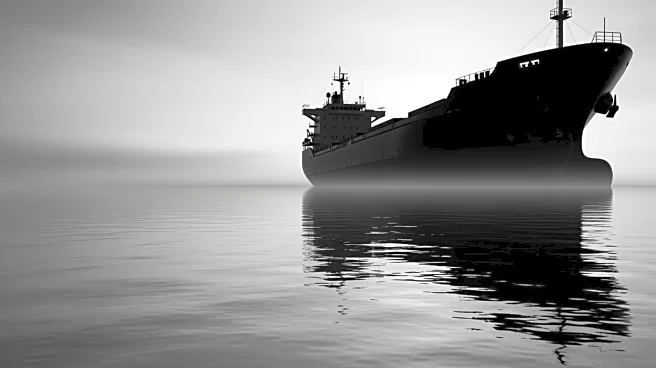What's Happening?
Iran's Revolutionary Guards have seized a tanker in Gulf waters, carrying petrochemicals bound for Singapore, citing alleged violations. The Marshall Islands-flagged tanker, named Talara, was intercepted and diverted into Iranian territorial waters. This
marks the first such seizure since Israeli-US strikes on Iran in June. The tanker was reportedly carrying high-sulfur gasoil from Sharjah, UAE, and was managed by Columbia Shipmanagement, which lost contact with the vessel near Khor Fakkan, UAE. The US military is monitoring the situation, and the vessel's owner, Cyprus-based Pasha Finance, is involved in efforts to restore contact.
Why It's Important?
The seizure of the tanker by Iran's Revolutionary Guards highlights ongoing tensions in the Gulf region, affecting global maritime security and trade routes. Such actions can disrupt the flow of petrochemical products, impacting industries reliant on these materials. The incident may escalate geopolitical tensions, particularly involving the US, which is closely monitoring the situation. This development could lead to increased scrutiny and security measures in the region, affecting shipping operations and international relations.
What's Next?
The US military's involvement suggests potential diplomatic or military responses to ensure the safety of commercial vessels in the region. Maritime security agencies and the vessel's owner are working to re-establish contact with the Talara, which may involve negotiations with Iranian authorities. The incident could prompt discussions on maritime regulations and enforcement, potentially leading to international diplomatic efforts to prevent future seizures.
Beyond the Headlines
The seizure reflects broader geopolitical dynamics, including Iran's strategic use of maritime control to assert regional influence. It raises questions about the legal frameworks governing international waters and the rights of nations to enforce cargo regulations. The incident may influence future maritime policies and security strategies, emphasizing the need for international cooperation to address such challenges.















